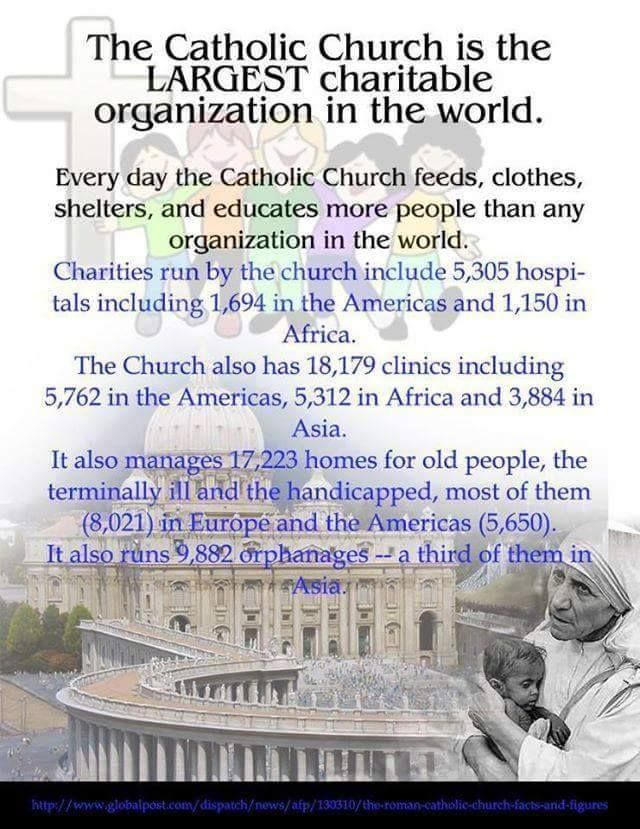But how do people know when a Pope is speaking ex cathedra?It IS true.
When the Pope speaks ex-cathedra it is binding on all catholics and ONLY in this circumstance is he considered to be infallible.
The catholic church does believe that Popes have this authority...I did not question that.
In matter of MORALS and FAITH...the pope can speak with authority that is given to him from the cc itself.
Although the office of the Papacy did not begin with Peter,,,it is true that Rome was looked to as the city/and Bishop, that most represented the church and was sought after when a dispute arose.
It reminds me of the saying in French, plus ça change, plus c'est la même chose -- "the more things change, the more they stay the same"; but here it's "the more things change, the more we claim it's always been the same."True. Once doctrine has been proclaimed,,,it cannot be changed.
Precisely because the cc wants to believe the Pope is not fallible in these matters.
Yes. It's still part of catholic teaching.
Catholics must believe in catholic doctrine...this is why I left...there was too much to believe that I did not believe.
As to saying that Protestants can be saved:
Originally when the church declared that outside the church there is no salvation
(Extra Ecclesiam Nulla Salus) there was no other church,,,only the catholic church.
So, outside the church there was no salvation...one had to be saved through the church...it was taught that the church saved....Jesus saved...but through the church.
This is interesting...read under HISTORY:
Extra Ecclesiam nulla salus - Wikipedia
Now, with the new Catechism of the Catholic Church, it shows that the catholic church believes that persons outside the cc can be saved...However, they do believe that a person who knowingly understands the catholic faith and leaves the church is in danger.
For non-catholics:
The CCC no. 1271
1271 Baptism constitutes the foundation of communion among all Christians, including those who are not yet in full communion with the Catholic Church: "For men who believe in Christ and have been properly baptized are put in some, though imperfect, communion with the Catholic Church. Justified by faith in Baptism, [they] are incorporated into Christ; they therefore have a right to be called Christians, and with good reason are accepted as brothers by the children of the Catholic Church." "Baptism therefore constitutes the sacramental bond of unity existing among all who through it are reborn."
If they hadn't had "binding" Ecumenical Councils and the like, life would have been so much easier. Why didn't they imitate the Sanhedrin? They give the Sanhedrin as a precedent by citing Jesus:
Matthew 23:1 Then spake Jesus to the multitude, and to his disciples,
2 saying, The scribes and the Pharisees sit in Moses’ seat:
3 all therefore whatsoever they bid you observe, that observe and do; but do not ye after their works: for they say, and do not.
The Sanhedrin never ruled on doctrine. Note that Jesus did not tell them to believe doctrines taught by the Sanhedrin. They didn't do that. They made rulings about practices. Sadducees and Pharisees could sit together and vote on things. They shared the same Temple. If times changed, some practices needed to be changed. That is why Jews couldn't read the Bible and know what to do. So Moses said not to eat milk and meat. What did that mean? Could you eat meat, clear the table and immediately say you were holding another meal so you have milk? No? How long did you have to wait then? Blue tassels on your clothes? What shade of blue? People lost track of that; and different Jews were free to do what they wanted. The current Sanhedrin was looking at that question. I don't know if they issued a decree or not; but if they did, then Jews everywhere would be expected to comply. No big deal.
The Catholic Church took that passage from Matthew and added, "whatever they bid you believe, believe." It divided the Church.
What did Paul mean by "heretics?" I think he meant people who created schisms by forming parties. Leave it up to the Bishop to deal with people who try to form a party by inventing new doctrines.
Last edited:


